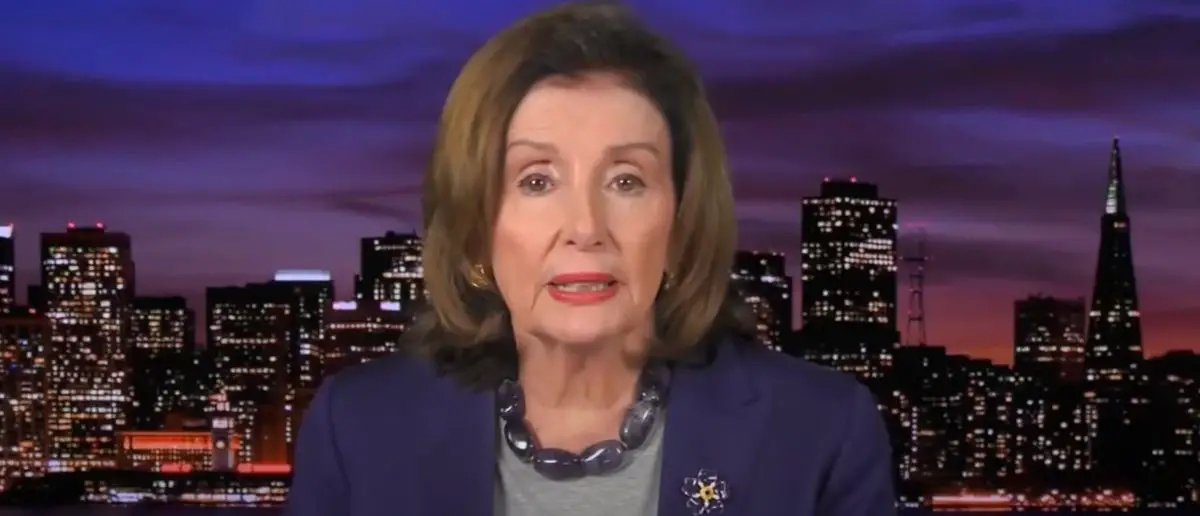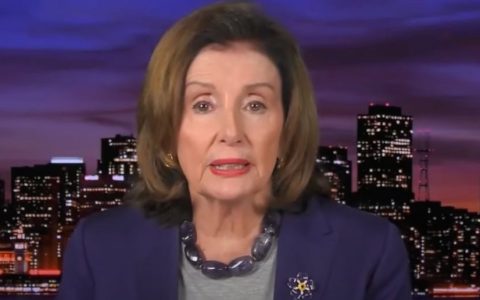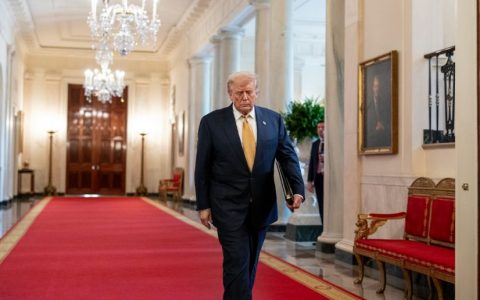
The honeymoon for Donald Trump is over. He’s in the thick of it now.
And the former Speaker of the House went on Sean Hannity’s show to make these astonishing comments about Donald Trump.
Trump’s Strategy in Iran-Israel Conflict Could Reshape History
The escalating conflict between Iran and Israel has thrust the Middle East into a precarious moment, but President Donald Trump’s calculated approach may prove to be a historic turning point. With tensions flaring since Israel’s preemptive strikes on Iranian military targets last Thursday, Trump has positioned the United States as a decisive force, carefully navigating the delicate balance between deterrence and diplomacy. His administration’s strategy, rooted in strength and clarity, aims to neutralize Iran’s nuclear ambitions while avoiding a prolonged conflict, showcasing a leadership style that contrasts sharply with decades of hesitation from previous administrations.
Former Republican House Speaker Newt Gingrich, appearing on Fox News’ Hannity on Wednesday, praised Trump’s approach as potentially transformative. “Well, when historians look back and say ‘Did Donald Trump really make a difference?’ Think about this. The original Ayatollah Khomeini first started calling us the Great Satan in 1978. Iranian mobs began chanting death to America in 1979 when they seized, illegally, the American embassy,” Gingrich said. He highlighted the long-standing hostility from Iran’s regime, framing Trump’s response as a critical departure from past U.S. policies that allowed Iran’s provocations to fester unchecked.
The conflict erupted when Israel launched precise strikes on dozens of Iranian military targets, k*lling top officials and damaging sites linked to Iran’s nuclear weapons program. These actions, which began last Thursday, have significantly escalated the stakes in the region. Israel’s Prime Minister Benjamin Netanyahu, a close ally of Trump, has shown unwavering resolve, dismissing Iran’s offers for negotiation. “This would not have happened with anyone except Donald J. Trump. It’s obvious. This guy has the guts. He has the understanding. He actually follows the logic,” Gingrich said, emphasizing the synergy between Trump and Netanyahu in confronting Iran’s aggression.
Trump’s public statements have been clear and direct, reinforcing his administration’s stance. On Tuesday, he took to Truth Social to issue a stark warning to Iran’s leadership after urging Tehran’s residents to evacuate the previous day. “We know exactly where the so-called ‘Supreme Leader’ is hiding. He is an easy target but is safe there – We are not going to take him out (k*ll!), at least not for now. But we don’t want missiles shot at civilians, or American soldiers. Our patience is wearing thin. Thank you for your attention to this matter!” Trump wrote.
Iran’s Supreme Leader, Ayatollah Ali Khamenei, responded defiantly, with Iranian state media reporting his statement that Iran “cannot be surrendered,” according to The New York Times. This rejection of Trump’s demand for “unconditional surrender” highlights the regime’s intransigence, further justifying the Trump administration’s firm stance. Unlike previous U.S. leaders who engaged in prolonged negotiations with Iran, Trump’s approach prioritizes action over rhetoric, aiming to dismantle the regime’s ability to threaten the region.
Gingrich drew a historical parallel, likening the Trump-Netanyahu partnership to the Reagan-Thatcher alliance. “They have been taunting us, attacking us, harassing us all these years, through all these presidents, and finally they have collided with Donald J. Trump, and he’s crossed the line,” Gingrich added. “He and Netanyahu are partners, much like Reagan and Margaret Thatcher were partners, and the two of them are going to change history decisively. I believe they’re going to break the mullahs and the regime, create a new Iran, which will, in a decade, be dramatically more prosperous, be a neighbor, be accepted, be part of the region.”
The Trump administration’s deliberations have been meticulous, with the president reviewing attack plans for Iran while holding off to gauge Tehran’s next moves, according to a source familiar with the matter speaking to CNN. These plans, discussed in the Situation Room this week, include a range of options, though no final decision has been made. Trump himself emphasized his preference for flexibility, telling CNN’s Kaitlan Collins, “I have ideas as to what to do, but I haven’t made a final — I like to make the final decision one second before it’s due, you know, because things change. I mean, especially with war, things change with war. It can go from one extreme to the other.”
The White House has maintained that all options remain under consideration. “As President Trump said himself today, all options remain on the table,” a White House official stated on Wednesday. This openness to various strategies demonstrates Trump’s pragmatic approach, balancing the need to protect U.S. interests with the desire to avoid a full-scale war. Reports from CNN indicate that Trump is increasingly open to targeted strikes on Iran’s nuclear facilities, a move that could cripple the regime’s nuclear ambitions without entangling the U.S. in a prolonged conflict.
Israel’s recent strikes have already inflicted significant damage, targeting three of Iran’s nuclear facilities. While the full extent of the destruction remains unclear, Iran’s nuclear program, developed in secrecy since the 1960s, is known for its resilience, with some facilities buried underground. Iran insists its program is peaceful, but its history of deception has fueled skepticism. Netanyahu, in an interview with ABC News, dismissed Iran’s overtures for talks, stating that Iran continues to “have these fake talks in which they lie, they cheat, they string the U.S. along.” Trump’s alignment with Netanyahu’s hardline stance strengthens the U.S.-Israel partnership in confronting this threat.
The Trump administration’s approach contrasts sharply with the diplomatic stalemates of past decades. Gingrich emphasized this point, noting, “If you don’t want a nuclear Iran, then you’ve got to stop the mullahs, because as long as they’re there, there’s going to be a nuclear Iran, and he’s prepared to do whatever it takes to stop them. This will not be a forever war. This will be a brief, brutal, direct use of American power to end the regime and end the threat and make both the world and the Middle East safer.” This perspective highlights Trump’s commitment to decisive action, avoiding the pitfalls of drawn-out conflicts.
Trump’s messaging has been consistent, blending public warnings with strategic restraint. His Truth Social post not only pinpointed Khamenei’s location but also made clear that the U.S. seeks to avoid civilian casualties while maintaining pressure on Iran’s leadership. This calculated approach aims to deter further aggression while keeping the door open for Iran to back down.
The partnership between Trump and Netanyahu has been pivotal in shaping this response. Their coordinated efforts, built on mutual trust and shared objectives, have positioned the U.S. and Israel as a formidable counterforce to Iran’s ambitions. By supporting Israel’s preemptive strikes while holding U.S. military options in reserve, Trump has crafted a strategy that keeps Iran guessing while reinforcing America’s commitment to its allies.
Iran’s nuclear program, capable of most stages of uranium production, remains a central concern. The regime’s history of covert development and underground facilities girds the urgency of the current moment. Trump’s willingness to consider military action, as reported by CNN, demonstrates his administration’s resolve to prevent a nuclear-armed Iran, a threat that has loomed over the region for decades.
The administration’s careful calibration is evident in its ongoing discussions. Top officials are exploring ways to leverage U.S. military assets effectively, focusing on strikes that could neutralize Iran’s nuclear capabilities without triggering a huge conflict. This strategic restraint, paired with Trump’s public warnings, creates a dynamic where Iran faces intense pressure to reconsider its course.
As the situation evolves, Trump’s leadership continues to define the U.S. response. His ability to thread the needle—balancing strength with caution, action with diplomacy—has positioned the United States to play a pivotal role in reshaping the Middle East. The coming days will test this approach, but Trump’s track record suggests a readiness to confront challenges head-on, potentially altering the course of history in the region.
Stay tuned to the DC Daily Journal.





